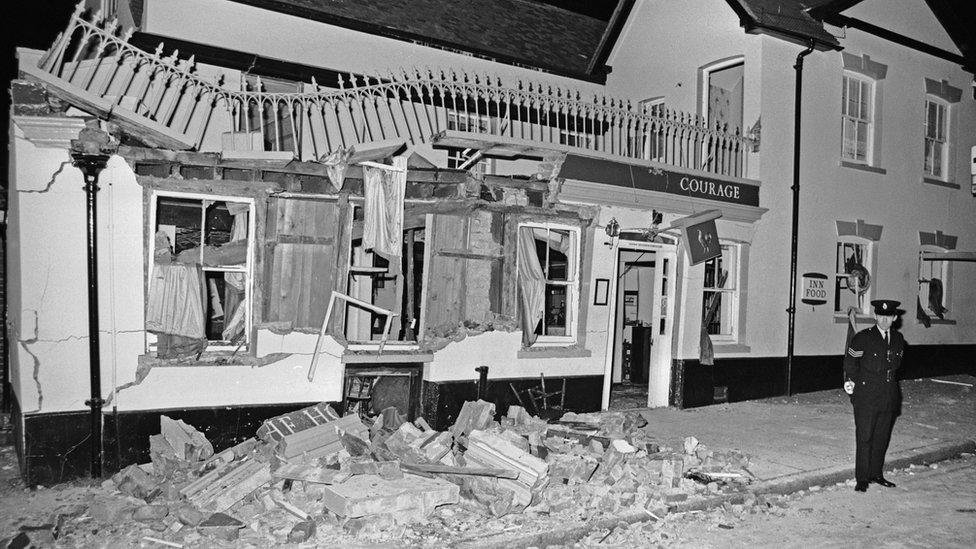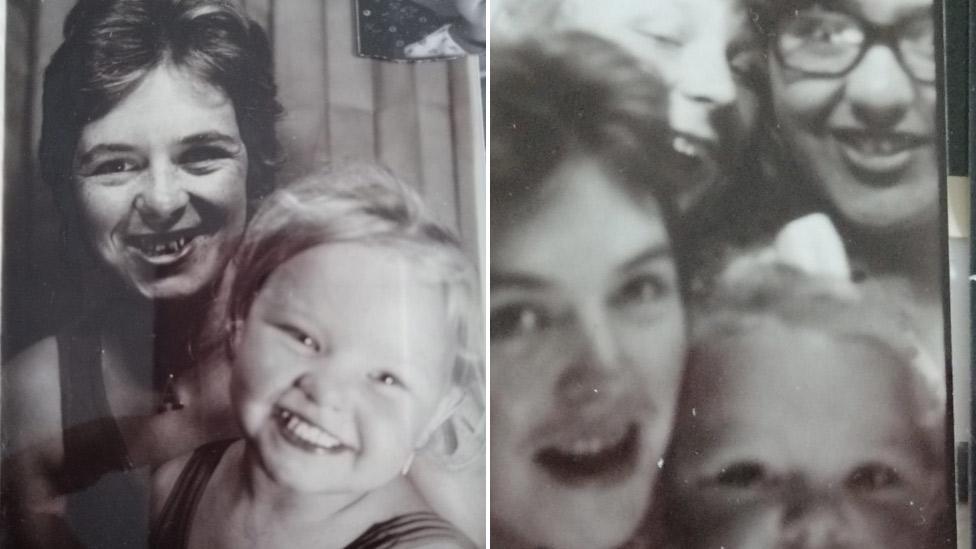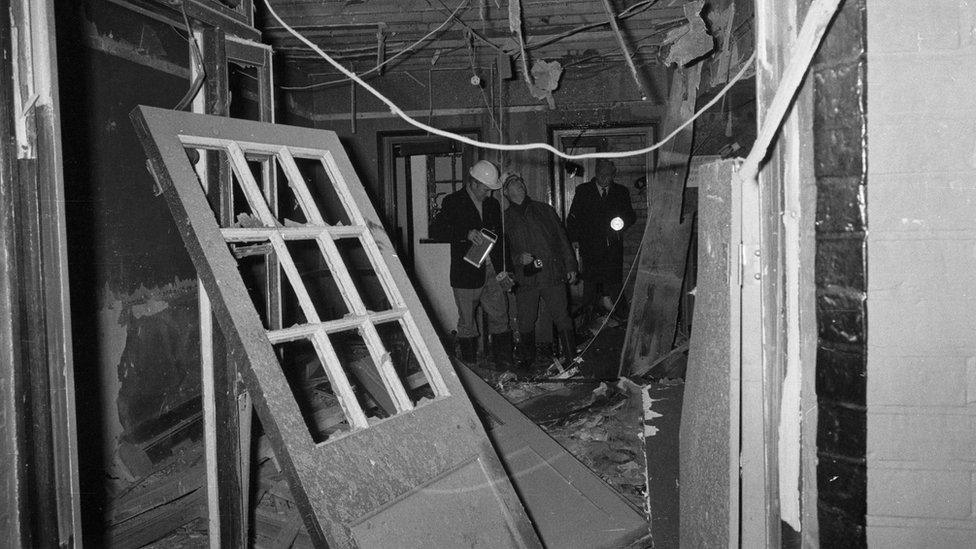Guildford IRA attacks inquest could look at questions over pub bomb timings
- Published

Both pubs in Guildford were popular with British Army personnel
The inquest into the Guildford pub bombings could look at alleged timing discrepancies in the 1974 IRA attacks, after questions were raised by the family of a killed soldier.
Cassandra Hamilton, sister of victim Ann Hamilton, wrote to Surrey coroner Richard Travers listing questions that did not fall within his parameters.
Before Friday's pre-inquest review, she spoke of the family's need for answers.
Her sister was one of four soldiers who died, alongside a civilian.
The attacks, in which both the Horse and Groom and Seven Stars pubs were bombed, also injured 65 people on 5 October 1974.
Following the explosions, the Guildford Four were wrongly-convicted in what became one of Britain's biggest miscarriages of justice.
Two IRA men admitted responsibility for the explosions in 1976 but no-one else was charged after the Guildford Four were freed.

Cassandra Hamilton released pictures showing Ann and Cassandra (left) and the four siblings, Frank, Marie, Cassandra and Ann, clockwise (right)
Ms Hamilton said she wanted to know why there were inaccurate reports in the media at the time, why different timings were reported for the first bomb and whether there had been what she described as a "time lapse" in the response.
She also wanted to know why the wrong people were convicted, and why her sister's barracks were not on lockdown.
Oliver Sanders QC, counsel to the inquest, said two of the questions fell out of the inquest's remit - press coverage at the time, which took place subsequently to the deaths, and the prosecution of the Guildford Four, which Surrey's senior coroner Richard Travers has said will not be covered.
However, Mr Sanders said: "Timings will be something we will be able to address. We do have evidence going to that."
He said "there are slightly different versions" of the timing of the bombing, which is known to have been between 20.30 and 21.15.
He also said the issue of whether Pte Hamilton's barracks should be on lockdown was something the inquest could look at.
He said: "There is not any evidence of prior warning of the attack or of there being similar attacks in the area at that time. There were IRA attacks in the early 70s but no specific threat we are aware of in this area."
However, Mr Sanders said contact had been made with the government's legal department to investigate the alert status of different barracks.

Wrongly-convicted Gerry Conlon, Paddy Armstrong, Paul Hill and Carole Richardson served 15 years in jail
A provisional scope for the inquest was set out in 2019 but Mr Travers is still to determine the scope at a further hearing in January, when he will also hear submissions on the parameters for the full hearing next year.
A decision on whether a jury will be appointed will also be made later.
Mr Travers said he would like to hear submissions from the family on whether they would like a jury, but added: "I can't oblige them to make submissions.
"Whether they express an opinion or they don't, I would be interested to know what their views are."
Fiona Barton QC, for Surrey Police, also said the views of the family were "front and centre" of the inquest.
A full inquest is expected to be held next year.

Follow BBC South East on Facebook, external, on Twitter, external, and on Instagram, external. Send your story ideas to southeasttoday@bbc.co.uk.
Related topics
- Published5 October 2021

- Published16 July 2021
